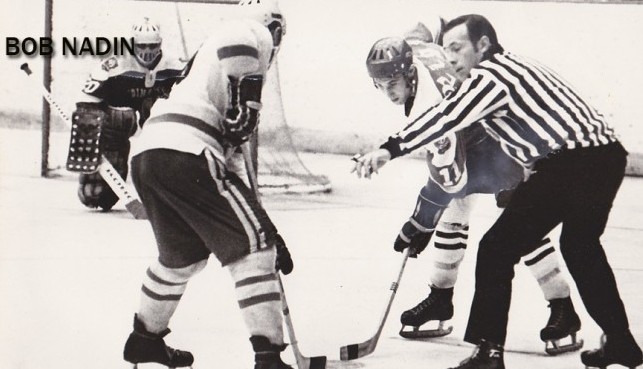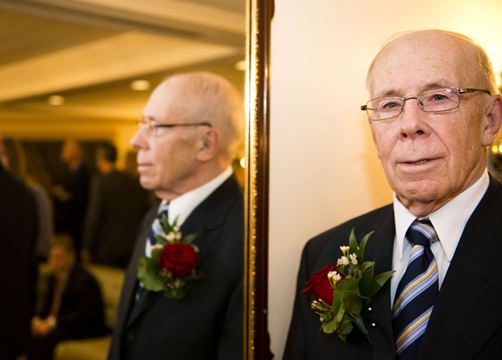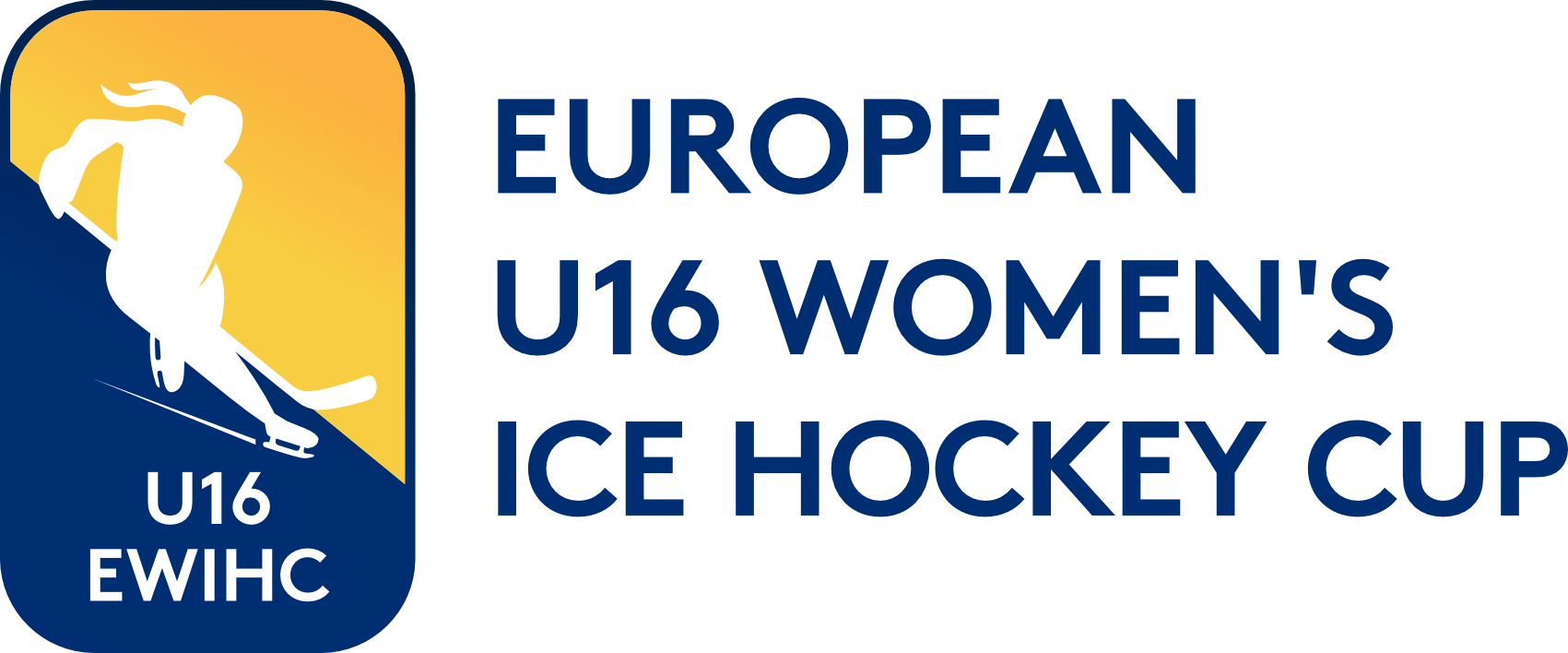
Canadian Bob Nadin was the referee supervisor for at the U18 Women’s Division 1 World Championships that was held in Miskolc. The elderly gentleman was found walking up and down with his 14 year old grandson talking to people and giving tips of knowledge to the game officials throughout the tournament. It was very clearly that icehockey.hu would have a great talk with Mr. Nadin.

Bob Nadin got his start in hockey like most school buys did in the Toronto area however the local church league asked him to officiate games since was playing outside to the league, this was how he got his first taste in officiating. Later he played for the University of Toronto when some professors asked him to ref some games in the intra-department league at the University. This led to him playing for a job at the Ontario Hockey Association which snowballed into a job with Hockey Canada.
When did you realize that officiating might be the way to go with your hockey career?
“I had a job offer from the NHL to officiate games but the salary that they offered me was half of what I was making as a teacher, I had just gotten married and bought a house, and at that time I was not interested in getting a 50% pay. Plus i was still able to do amatuer games and also if you add the travel in it, at that time it was not feasible. I just started to do more and more things for the IIHF. I have been working really for the IIHF since the mid 70s.”
Bob Nadin was the referee supervisor during the 1998 Nagano winter Olympic games which was the first Olympics that had NHL players, however the referees stayed the same.
“We would have meeting for the referees and and we had videos in preparing for the influx of more NHL players. You can only prepare for so much and you have to read and react to what you know. It's no different than a coach telling a player what to do. You hope that the officials do what you tell them to do. To me the refereeing has improved a lot during the years.”
How much has the officiating improved since you joined the IIHF?
It has improved because more and more European players have been exposed to NHL games and higher level of hockey, when they are coming back home to their own country. The home referees have also been adjusting to what the players had improved. Now the NHL is inviting European referees to their training camps and they are exposed to more instruction NHL wise.”
As the game of hockey improves and becomes faster in a country does this also have a positive influence on the officiating?
“Yes it does, you have to adjust to what is new and how the speed picks up. It takes time to adjust to a different style of hockey, maybe a style of hockey that has more contact. It's a bigger rink, it took NHL players to get used to the larger ice as well.”
What about women's hockey officiating, how hard is it to switch from calling men's games to women's games?
“At international tournaments only women will officiate a women's game. The biggest adjustment is the familiarizing with body checking, for men how to rub a players against the boards and how you can lean on them. A body check at center ice is pretty easy to see that it is penalty but it is hard to call for men because they are not used to it. We are trying to get more women who played hockey to officiate games in Canada because they grew up with it. More na more women are wanting to become referees, there is an opportunity to travel there are more leagues. There is a shortage for opportunities for women in Europe to gain experience.
Where do you see women's hockey developing outside of North America?
“The international competition in the U.S. and Canada will draw, the leagues not so much, to me there needs to be more young girls getting into it and more parents are getting into it as well. To me hockey is more of a team sport than the other ones out there. As long as they keep injuries out of it parents will let their daughters get into the game. Communities in North America they are saying that girls need to have good ice time like the boys do and in Europe this isn't happening as much.”
We have heard that hockey is not the only thing you spend your time with, you also have a large stamp collection.
“When I was a kid I used to collect stamps but when I became a teenager I started to have different interests as well. I let it go, and about ten years ago I started to get back into it as I started to travel more with the IIHF. Once my father passed away I found a large amount of stamps that we had collected at home. Now these days anytime a I visit a country I try to get to the post office to see what kind of stamps I can find. I actually have a very large stamp collection. I have about 300-400 hockey stamps. There are still about 25 hockey stamps that are missing from my collection that I am still trying to find.”
With today's technology less and less people are actually mailing letters, how has this been on thestamp collecting industry?

“This is still one of the largest and most popular hobby out there, on one of the off days I went to an antic story in Budapest to try to see what I can find. I have about 300 stamps just from Hungary since I have been here a couple of times in the past. The hockey hall of fame also has a number of stamps that I help out with as well.”
What do you have planned for the rest of the season?
There are plans for me to go to one more tournament this season, but I will be in Mexico for the men's Division 2/B worlds. I really like the lower divisions because more interesting things happen. You get to see new officials to the IIHF and maybe you can bring them up to a higher level. One time I found a guy down in Mexico who was really good and we ended up sticking him into the U20 worlds where he did just fine. However I really like to see people and person and watch them officiate.
